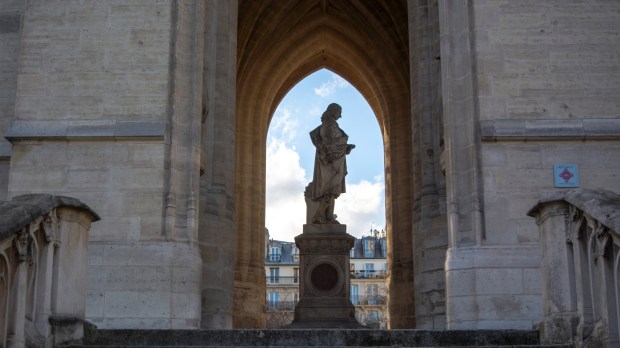To mark the 400th anniversary of Blaise Pascal’s birth this coming June 19, Pope Francis is expected to publish an apostolic letter on the French philosopher and scientist. This comes as no surprise since, in 2017, in an interview with Eugenio Scalfari published in the Italian journal La Repubblica, he had already declared his support for Pascal’s beatification.
Pope Francis has already paid tribute to other great Christian intellectuals. In 2021, he published Candor Lucis Aeternae (2021), an apostolic letter that marked the 700th anniversary of the death of Dante Alighieri. Being a former professor of literature during his years as a Jesuit in Argentina, Pope Francis is well acquainted with the work of Blaise Pascal – whom he has repeatedly quoted in recent years.
A mathematician, physicist, and inventor from an early age, Blaise Pascal spent some time in the salons of Paris, before joining the Jansenist movement that was then growing around the abbey of Port-Royal – in fact, he even defended the Jansenist party against the Jesuits. Interestingly, Pope Francis (the first Jesuit pope) has repeatedly criticized what he considers to be a kind of neo-Jansenism spreading in today’s Church, which he describes as a tendency towards “intransigent closure, including in the face of ecclesiastical authority.”
But, as read in the note published by i.Media, “he also recognized the validity of the original intention of the Port-Royal movement, in particular the fight against Pelagianism and casuistry, the target of Pascal’s attacks.”
In his final years, Pascal set about writing an Apology of the Christian Religion, but died before being able to complete it. The fragments of this great unfinished project were collected in the Pensées.Here’s a collection of five quotes from Pascal’s Pensées – a book that Pope Francis has praised as “splendid, and spiritually interesting.”
People almost invariably arrive at their beliefs not on the basis of proof but on the basis of what they find attractive.
When I consider the short duration of my life, swallowed up in the eternity before and after, the small space which I fill, or even can see, engulfed in the infinite immensity of spaces whereof I know nothing, and which know nothing of me, I am terrified, and wonder that I am here rather than there, for there is no reason why here rather than there, or now rather than then. Who has set me here? By whose order and design have this place and time been destined for me?
God only pours out his light into the mind after having subdued the rebellion of the will by an altogether heavenly gentleness which charms and wins it.
I do not speak here of divine truths … because they are infinitely superior to nature: God alone can place them in the soul … I know that he has desired that they should enter from the heart into the mind, and not from the mind into the heart, to humiliate that proud power of reasoning that pretends to the right to be the judge of the things that the will chooses; and to cure this infirm will which is wholly corrupted by its filthy attachments.
They [men] have corrupted this [God’s supernatural] order by making of profane things what they should make of holy things, because in fact, we believe scarcely any thing except which pleases us.


